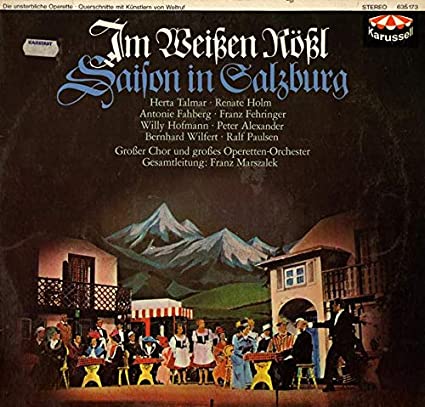Kevin Clarke
Operetta Research Center
21 October, 2020
There’s a lot happening in the world of theater right now, not just because of Corona and the ongoing lockdown that will probably change the scene dramatically because of financial consequences. Also, ideological debates are changing the world of theater, musical theater and operetta included. For next year’s meeting of the US-American Association for Theatre in Higher Education (ATHE) Professor Amy Osatinski from the University of Northern Iowa has sent out a note seeking participants for a panel on “swapping the canon”. The proposed title for the panel is “This Not That: Revising the Musical Theatre Canon”.

A student at a US-American university (Photo: Honey Yanibel Minaya Cruz / Unsplash)
Amy Osatinski is the author of the recent book Disney Theatrical Productions: Producing Broadway Musicals the Disney Way which came out in 2019 at Routledge. Her reasoning for revising the current musical theater canon is this: “For many years, educational institutions have bought into the notion that it is essential that we teach and produce the ‘canon of musical theatre.’ However, with few exceptions this ‘canon’ is created by white men and tells stories that center white men. Many of these titles are also racist, sexist, and/or homophobic. Yet, they still appear in our classes and on our stages.”

Amy Osatinski’s 2019 book “Disney Theatrical Productions: Producing Broadway Musicals the Disney Way.” (Photo: Routledge)
Osatinski would like to “dismantle” this canon “by presenting musicals that can be swapped in for ‘canonical’ musicals in class and in production.” She elaborates: “These swaps are musicals written by and featuring women and people of the global majority, musicals that allow for equitable non-traditional casting, and musicals that seek to dismantle racism and hetero-cis-patriarchy rather than reinforce it. This panel aims to equip attendees with ideas for what we can teach and produce instead of ‘the canon.’”
While her goal is probably laudable, from her point of view, it raises quite a few question, not just because she’s throwing buzz words around such as “hetero”, “cis” and “patriarchy”, as if everyone who is heterosexual and cis-gendered is the automatic enemy and a representative of oppressive patriarchy. No, another more deeply disturbing aspect comes to mind when reading about “swapping” the musical canon.

Dostal’s copy of “Gräfin Mariza”: the ultra-Hungarian “Ungarische Hochzeit” from Nazi times.
You will recall the Nazis were also faced with the problem that most operettas being performed as they rose to power in January 1933 did not fit their ideological ideals. So, while taking many of the “problematic” titles by Jewish authors out of circulation, they substituted them with new but similar titles by approved “Aryan” writers. To give a few examples: since Im weißen Rössl was considered “scandalous” (for mixing jazz music and Alpine folklore, and for having dancers emerge from the waters of Lake St. Wolfgang on stage in wet reveal-all bathing costumes) they had Fred Raymond create Saison in Salzburg. Theaters could re-use the Rössl sets and costumes (minus the bathing suits) and offer a show “written by and featuring” people they wanted to see as the new “global majority”. Similarly, Nico Dostal wrote Ungarische Hochzeit as a “Ersatzoperette” for Emmerich Kalman’s Die Gräfin Mariza. The list could go on.

A LP with “Saison in Salzburg” on one side and “Im weißen Rössl” on the other in the series “Unsterbliche Operette – Querschnitt mit Künstlern von Weltruf.” (Photo: Karussell)
After World War 2, many LPs had the Nazi substitute operetta on one side, and the formerly forbidden show on the other, re-arranged to sound almost exactly the same. Which took the “sting” out of many Weimar Republic shows and turned them into the boring nostalgia many people see them as today, the Rössl being the most famous example.
Of course, the Nazis were also 100 percent convinced that their ideological cleansing quest was morally right. Is Amy Osatinski seriously proposing a repetition of such an approach to musical theater?
What is wrong with questioning “the canon”, expanding it, making new proposals, and letting new shows (or rediscovered older ones) speak for themselves? Why are so many works written by female composers or lyricists still ignored – also by academia, of which Amy Osatinski is a representative? Why are operettas written by Afro-American authors not being put on right this minute, while people on the streets are shouting “Black Lives Matter”? Where were the high school productions of The Octoroon (1895), of Clorindy (1898) or A Trip to Coontown (1898)? Where are the biographies of Will Marion Cook, Bob Cole, or William Johnson, not to mention Matilda Sissieretta Joyner known as “the Black Patti”?

“The Black Patti, Mme. M. Sissieretta Jones the greatest singer of her race.” Published 1899.
Has Amy Osatinski suggested researching any of this at the University of Northern Iowa? Has she done so herself? Has she even taken note of books such as Die Frau im Dunkeln by Evelin Förster who dug into the works of female composers and lyricists, without demanded simultaneously that the works of the male counterparts should all the taken out of circulation because they represent “hetero-cis-patriarchy”?

Evelin Förster’s “Die Frau im Dunkeln: Autorinnen und Komponistinnen des Kabaretts und der Unterhaltung von 1901-1935.”
And what happens with the many heterosexual cis-gendered women who wrote/write shows: is their work not eligible for the “new” canon because they are not trans and/or non binary and/or queer and/or homosexual? Will we get, one day soon, double albums featuring the new canon combined with the substituted old one? (It would certainly make for interesting comparisons and might inspire those who, by then, will be busy with the next new “canon.”)
Instead of “swapping” the canon it might be worth the effort to question it more in depth, ask how we can deal with the aspects some find problematic today, without throwing everything over board. Canons are never cut in stone and unchangeable, thank God. And people in higher education should teach their students to always critically question canons and constantly revise them. Not by simply demanding new shows written by and featuring women and “people of the global majority”, but by including different shows in the discussion, bringing them into the spotlight, giving them an academic chance to compete for the attention of students.

Stewart F. Lane’s “Black Broadway.”
To simply “swap” something that does not fit your ideological bill is a very totalitarian approach, almost like a scene from The Handmaid’s Tale. I’d say it’s unworthy of an organization such as ATHE. But maybe I got it all wrong…?

It’s a good thing that we are discussing the zero-sum game of the canon swap and the lack of scholarship that is devoted to early Black thespians, but we can’t just go back to those original scripts and reproduce them after a little updating like Romeo and Juliet or 42nd Street. I have had this discussion more times than I care to count and I find that most people only know that In Dahomey, A Trip to Coon Town, The Oysterman and others existed, but they have little to no understanding of the scripts (or lack thereof) or other content that would make them unacceptable to contemporary audiences, especially if the producers don’t spoon feed context to the audience so they can’t subconsciously insert the inequities that are fundamental to our cultural operating system. They were produced around the talent and acts that were available to them, so their plays were just slightly converted variety shows that were tied together with short skits that formed a rather loose plot. Serious drama was uncommon until decades later and those plays were still stuck in the same cultural muck of Jim Crow norms. This is precisely why Bert Williams and George Walker failed in England in 1897 and were full of anxiety to the point that they made so many changes to In Dahomey for their run in England in 1903 that it was almost unrecognizable to some when they returned to the US in 1904. They curated a spoon-fed, Afro-American spectacle so well that White people outside of the US had real trouble understanding it and insisted on changes that made it easier for them and not the other way around as the case always is when Afro-Americans come across something from the White world that we don’t understand.
The essence of it is that much like every commercial manifestation from Afro-American culture, those early plays are locked into the moment in time in which they were made. Otherwise, they could never have been produced and no momentum could be generated to improve upon. To that end, because every single thing that we produce must be acceptable on some level to the powers that be so that a dollar value can be assigned to it and exploited, we could not set a positive president for Afro-American identity until the advent of be-bop. In the liminal space afforded by be bop, every musician was subject to the same rules and once they got their head cut on the bandstand, they had to sit down regardless of their position in the Jim Crow binary. Where is that now? We don’t even make music anymore. We just punch buttons and mumble over computer generated tracks and get angry when the low fruit we grow gets taken and discarded because it isn’t conspicuously consumable.
Yes, you would appear to have got it all wrong.